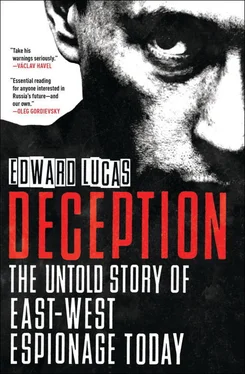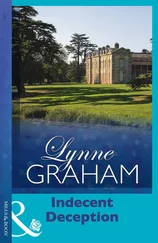As I see it, in 1918, Russia and Germany did a deal… under which Russia handed over part of its territories to German control. This marked the beginning of Estonian statehood. In 1939, Russia and Germany did another deal and Germany handed these territories back to Russia. In 1939, they were absorbed into the Soviet Union. Let us not talk now about whether this was good or bad. This is part of history. I think that this was a deal, and small countries and small nations were the bargaining chips in this deal. Regrettably, such was the reality of those times, just as there was the reality of European countries’ colonial past, or the use of slave labour in the United States […] If the Baltic states had already been absorbed into the Soviet Union in 1939, then the Soviet Union could not occupy them in 1945 because they had already become part of its territory.
The video of the press conference, after the EU–Russia summit on 10 May 2005, where he responds to the Estonian journalist Astrid Kannel, can be seen here http://www.youtube.com/watch?v=32X_FxR4KZg. An English transcript can be found here http://archive.kremlin.ru/eng/speeches/2005/5/10/2030_type82914type82915_88025.shtml. I have slightly amended the translation.
11 ‘From being accessories to military operations in 1914, they had become major players in the survival and destruction of states.’ From Dances in Deep Shadow by Michael Occleshaw (Constable, 2006) p. 309.
12 Ibid, p. 7.
13 The Eyes of the Navy by Admiral Sir William James (Methuen & Co., 1955) p. 177.
14 The Quest for C by Alan Judd (Harper Press paperback edn, 2000) p. 434.
15 The ‘intervention’, as it is known, involved fourteen foreign countries in all. An Anglo-American force, with French, Canadian and White Russian elements, attacked from Archangel. A French-led force, with Polish and Greek soldiers, supported General Deniken in southern Russia. Japanese, American, Czechoslovak and other troops fought alongside the Admiral Kolchak’s forces in Siberia. ‘Dunsterforce’ comprising Australian, British, and Canadian troops under General Lionel Dunsterville (the original ‘Stalky’ from Kipling’s ‘Stalky & Co.’) pushed north from Persia and occupied Baku. See among other works The Adventures of Dunsterforce (London, 1920) by Major-General L. C. Dunsterville C.B.
16 I first saw this poster in the excellent Civil War exhibition in the municipal history museum in Khabarovsk. The transliterated Russian reads as follows
Moi russkie druzya! Ya Anglichanin. Vo imya nashevo obshago soyuznago dela, proshu vas, eshche nemnogo proderzhites takimi molodtsami, kakimi vyi byili vsegda. Ya dostavlyal i eshche bezgranichno dostavlyu vse, chto vam budet nuzhno, i samoye glavnoye, dostavlyu vam noviye oruzhie, kotoroye istrebit etikh otvratitelnykh krovozhadnyikh krasnykh chudovisch.
17 Iron Maze by the former British intelligence officer Gordon Brook-Shepherd (Pan paperback edn, 1998), p. 103. The author draws heavily on Orlov’s then unpublished memoir. Orlov had earlier compiled an in-house history of the affair for the NKVD. Brook-Shepherd also had access to the early part of the private memoirs of Harry Carr. These are still classified and in the hands of SIS. Orlov’s book was subsequently published as The March of Time , edited by Philip Knightley (St Ermin’s Press, 2004). The same material quoted by Brook-Shepherd is found on p. 124 onwards. Orlov’s reliability has been questioned by, among others, Boris Volodarsky. But I do not find it plausible that he would have invented the entire affair.
18 Memoirs of a British Agent by Robert Bruce Lockhart (Putnam, 1932), p. 314. In accounts at the time his surname (depending on who is writing it) was given variously as Šmithens (in Latvian); Shmegkhen or Shmidkhen (in Russian transliteration, the former probably garbled) or ‘Smidchen’. Had he written it in Latvian, his real name was probably Jānis Buikis. At any rate, he was to play a vital role in the first big British intelligence fiasco of post-imperial Russia. Lockhart was a notorious frequenter of nightclubs. During a later stint in Prague, he even had a cocktail named after him, involving hefty slugs of brandy and champagne. Sadly, by the time I moved to Prague in 1989, all memory of this heroic drink had been lost.
19 Bennett, p. 48.
20 The March of Time, p. 129. Orlov notes: ‘Reilly fell into two major errors, ignorance and wishful thinking, which if combined with reckless courage, spell tragedy.’
21 Brook-Shepherd, p.107.
22 Judd, p. 426.
23 Red Dusk and the Morrow. Adventures and Investigations in Red Russia , by Sir Paul Dukes KBE (Doubleday, 1922). Downloadable at http://www.archive.org/stream/redduskandmorro1dukegoog#page/n8/mode/2up, p. 7.
24 Jeffery, p. 175.
25 Brook-Shepherd, p. 133.
26 A lively account of Dukes’s mission can be found in Operation Kronstadt (Arrow, 2010) by the pseudonymous former SIS officer Harry Ferguson.
27 Brook-Shepherd, p. 135.
28 The Last Englishman by Roland Chambers (paperback edn, Faber & Faber, 2010), p. 287. Shortly after Ransome returned, the Red Army defeated the ‘White’ forces under General Nikolai Yudenich. British destroyers evacuated them to a life in exile; Estonia and Soviet Russia opened talks on a peace treaty, signed in Tartu in 1920. Admiral Cowan’s squadron went home, basking in Estonian gratitude that was still heartfelt seventy years later. Ransome noted that this result represented a rare instance of being thanked for meddling in other countries’ affairs. He left with thirty-five diamonds and three strings of pearls of questionable provenance.
29 Bennett, p. 46.
30 Jeffery, p. 181.
31 Bennett, p. 51.
32 Brook-Shepherd, p. 255.
33 Ibid, p. 288.
34 Ibid, p. 291; the author spells his name Deribass.
35 Bennett, pp. 43–4.
36 Jeffery, p. 186.
37 Ibid, p. 185.
38 Ibid, p. 218.
39 For a thorough treatment of this remarkable and still puzzling affair, I recommend Gill Bennett’s monograph, ‘A most extraordinary and mysterious business: The Zinoviev Letter of 1924’ http://www.fco.gov.uk/resources/en/pdf/pdf5/fco_pdf_zinovievletter1It draws heavily on the unpublished work of Millicent Bagot, the MI5 expert on communism who was the real-life model for Connie Sachs in le Carré’s Tinker, Tailor, Soldier, Spy . http://www.guardian.co.uk/news/2006/jun/17/guardianobituaries.mainsection
40 Jeffery, p. 312. In fact, the agent had the information from close friends in the East Prussian aristocracy, who had met the German negotiators on a social visit, during which they had spoken freely.
41 Jeffery, pp. 372–3.
42 Jeffery, pp. 192–3.
9 Between the Hammer and the Anvil
1 It involved tens of thousands of fighters, pitched battles, networks of underground bunkers, elaborate command structures, education and welfare systems, propaganda newspapers and a parallel justice system. The historian Joseph Pajaujis-Javis lists the Lithuanian partisans’ goals as: (1) To prevent Sovietisation of the country by annihilating communist activists and the KGB forces in the countryside; (2) to safeguard the public order, to protect the population from robberies, either by civilians, or by Red soldiers; (3) to free political prisoners from detention wherever circumstances allowed it; (4) to enforce the boycott of the ‘elections’ to the Supreme Soviet of the USSR or to the leadership of the puppet state, and thus to prevent the falsification of the will of the Lithuanian nation and the creation of a false base for the legality of the Soviet-imposed regime; (5) to disrupt the draft of Lithuanian youth into the Red Army; (6) to obstruct the nationalisation of landed property and collectivisation of agriculture; (7) to prevent the settling of Russian colonists on the land and in the homesteads of the Lithuanian farmers deported to Siberia. From Soviet Genocide in Lithuania (Manyland Books, New York, 1980), p. 95, quoted (p. 24) in ‘Forest Brothers from the West’ by Darius Razgaitis (Boston University thesis 2002) available at http://www.mrdarius.com/fb/wfd.pdf
Читать дальше












